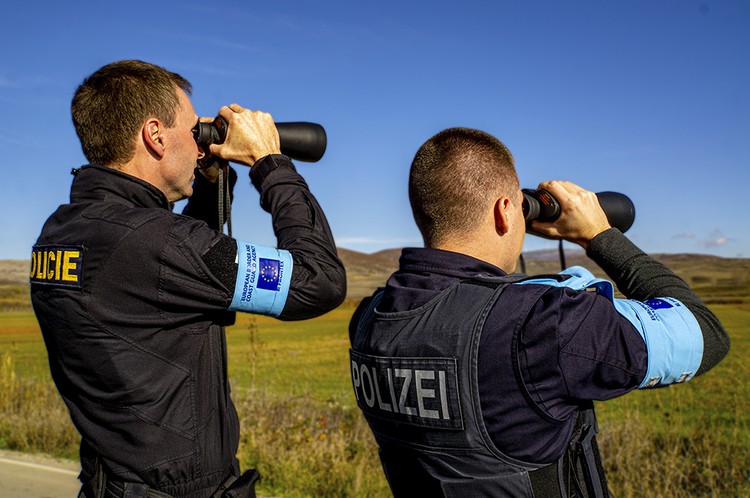Today, Frontex, the European Border and Coast Guard Agency, is gaining new responsibilities and tools to more effectively support EU Member States and Schengen Associated Countries in managing their external borders to provide a high level of security for all their citizens.
The new European Border and Coast Guard regulation that is coming into force today paves the way for the creation of Europe’s first uniformed service. Soon, Frontex will count on 10 000 border and coast guard officers to assist national authorities with border control and migration management.
News
New Frontex Regulation comes into force
2019-12-04
“With our own standing corps and own equipment, Frontex will be a daily partner for national authorities to design sustainable border management capacities rather than simply responding in a crisis management mode. Our operational aim is to have well-functioning external borders ensuring trust in our European Area of Freedom, Security and Justice.” Frontex Executive Director Fabrice Leggeri
Frontex border guards will be a crucial part in the effort to better integrate the European Border and Coast Guard, which consists of national border and coast guard authorities and Frontex. Together, national authorities and Frontex will plan its future growth.
More secure external borders
Frontex will help to strengthen Europe’s ability to respond at its borders by sharing of relevant information and regular risk analyses. The agency will help predict challenges facing EU countries at their borders and support national authorities to respond adequately.
Frontex maintains a European overview of border control and migration management thanks to its 24/7 monitoring of the situation at the borders and beyond.
Thanks to its annual assessments of Europe’s preparedness to face challenges at its borders, and thanks to the standing corps, Frontex can propose to reinforce European countries with additional border control experts and equipment.

Well-functioning borders
Frontex will be able to provide a variety of operational services to EU and Schengen countries, from border surveillance and border control to return, including supporting the reintegration of returnees in non-EU countries. The Agency will continue to strengthen its role in fighting cross-border crime, including in the maritime domain.
It will also play a bigger role in the management of the growing flows of legitimate travellers across EU’s external borders, hosting the future central unit of The European Travel Information and Authorisation System (ETIAS) and supporting Member States with the deployment of the Entry-Exit-System.
Frontex will plan EU’s response to challenges at the external borders together with national authorities – rather than only reacting to crises.
Sustained European border and coast guard capabilities
Effective border control and migration management require cooperation. Frontex is the guardian of the integrated management of Europe’s borders (IBM). Unified rules and standards are essential to manage the external borders, address migratory challenges and contribute to Europe’s security. Together with national authorities, EU institutions and other agencies and organisations, Frontex will implement the IBM strategy at the European and national levels.
The agency will develop integrated planning (capability development, contingency and operational) and support European countries in preparing national capability development plans. These will allow national authorities and Frontex to strengthen their ability to protect Europe’s borders.
With the new regulation in place, Frontex will:
- Develop and strengthen EU’s border management capacities through the development of the integrated planning (capability development planning, contingency planning, operational planning)
- Become more active outside the European Union with the ability to conduct operations in non-EU countries that do not neighbour the EU
- Upgrade its
management system
to ensure that Frontex remains fully accountable and transparent as it
continues to grow
- Continue to ensure well-functioning border controls for EU citizens and travellers from other countries
- Continue to build resilience at Europe’s borders thanks to its annual assessments
- Continue to maintain safe and secure external borders by providing national authorities with operational support at land, sea and air
- Continue to contribute to the fight against cross border crime by providing experts and training
- Continue to assist national authorities in effective returns of those who are not eligible to remain in the EU in all stages of the process. Under the new regulation, Frontex will also focus on post-arrival/post-return assistance.
- Continue to be the eyes and ears of law enforcement at the external borders with constant situation monitoring, risk analyses and information exchange on what is happening at EU’s borders and beyond
- Frontex remains committed to the respect of fundamental rights. Under the new regulation, the agency will have 40 fundamental rights monitors in its operations.